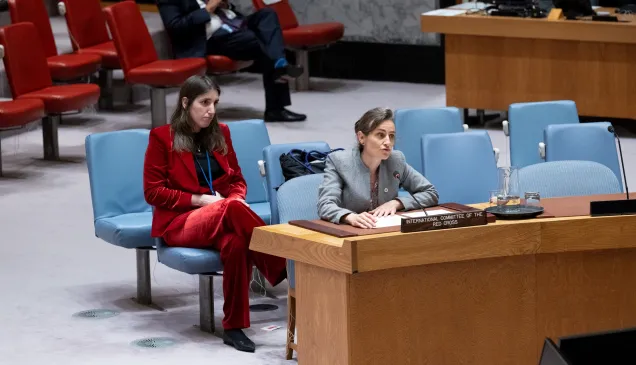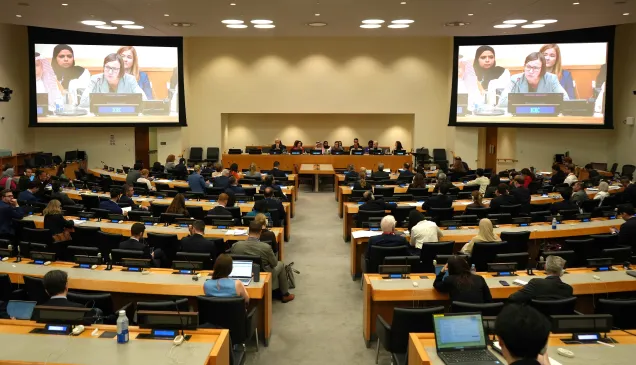The International Committee of the Red Cross (ICRC) welcomes the adoption of United Nations Security Council Resolution 2730, which serves as a clear reminder of the absolute necessity and obligation for all parties of armed conflicts to respect and protect humanitarian personnel, their premises and assets.
This obligation is a duty for parties to a conflict and a collective responsibility of all states to uphold that rule; states must also ensure respect for international humanitarian law as a whole.
Just as the civilian population is paying an increasingly unbearable price in today's conflicts, so too are humanitarian personnel, who face daily risks such as verbal threats and intimidation, disappearance, serious injury, and death.
There is little doubt about the causes: limited humanitarian space and access, a lack of compliance by parties of their obligations under international humanitarian law, and increasingly unsafe and complex environments.
The principles of distinction, proportionality and precautions in armed conflict need to be interpreted and applied in a way to effectively protect humanitarians on or near the battlefield.
While each security incident has an impact on humanitarians' capacity to deliver and remain present during the worst of hostilities, it is civilians in dire humanitarian need at the most critical times who ultimately suffer the most from acts that lead to reduced humanitarian assistance and protection.
"Red Cross and Red Crescent volunteers and ICRC staff are often the first to respond in conflict. Every day they work to keep humanity alive, aiding people in desperate need and too often paying the highest price in the process. We join the Security Council in paying tribute to all humanitarian personnel, including those who have sacrificed their lives in the service of humanity," said ICRC President Mirjana Spoljaric.
The resolution also recognizes the increasing risks for humanitarian organizations stemming from digital threats, the dangers unexploded ordnance pose to humanitarian personnel, and it highlights the particularly heavy toll on national and locally recruited staff.
The unacceptably high price paid by humanitarian personnel must stop, and it is only the vigorous application in practice of this resolution that will make a difference on the ground.




